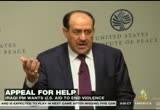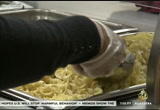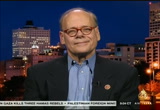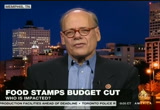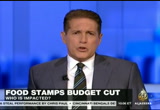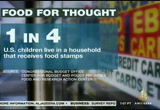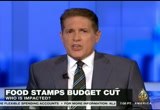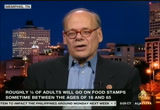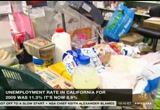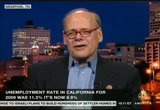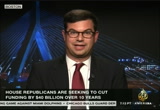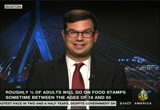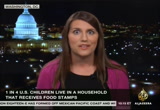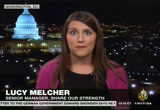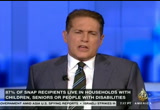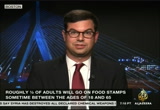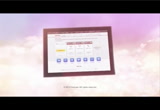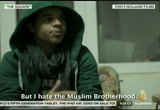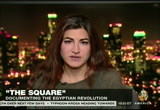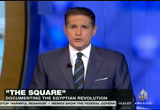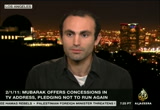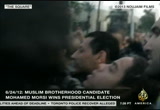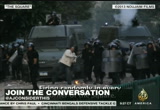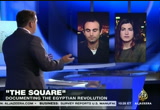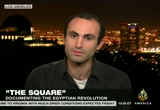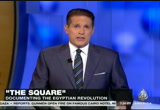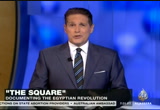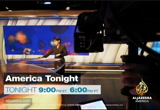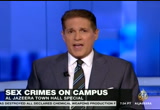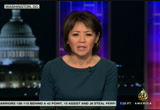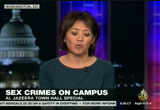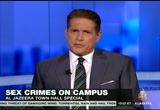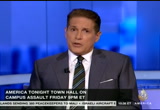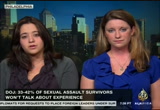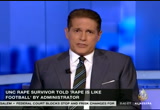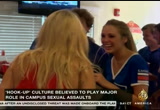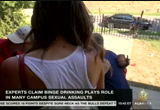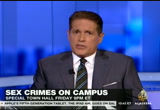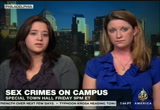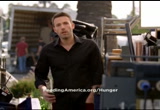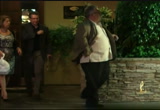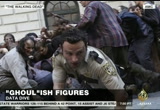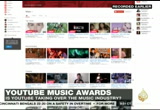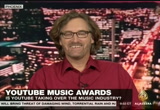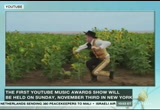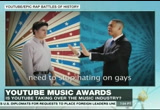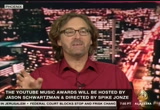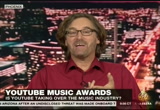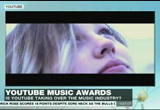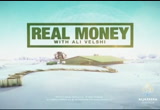tv Consider This Al Jazeera November 1, 2013 10:00am-11:01am EDT
10:00 am
this is al jazeera america, coming to you live from new york city. i'm del walters with a look at today's top stories. a slow start for the affordable care act. white house war room showing only 248 people enrolled in the program after the first two days. the use it or loose it roll for flexible health spending accounts is being eased. a change lets you carry over up to $500 in the next year without penalty. and the president of iraq saying thursday that there is change that is needed. this is the first time that the prime minister has gone to washington since u.s. troops pulled out of iraq who years
10:01 am
ago. secretary of state john kerry now admitting that some u.s. surveillance went too far, but he says no innocent people were hurt in the process. kerry visits egypt on sunday. severe storms tearing through the middle of the country overnight, in kentucky strong winds ripping the roof after of a shopping center there. that severe weather now headed east. those are your headlines, "consider this" is next. and 24 hours a day check us out at aljazeera.com. cut nearly 1 in 7 americans rely on them to eat. but consider this with so many americans on food stamps can the country afford them? and a first hand look at the egyptian revolution. we'll talk to two people who
10:02 am
braved arrests and crackdowns to document all of it. and youtube hosts its first music video awards. it is just a matter of time before the website replaces mtv as the home for music. 47 million americans will receive less money for groceries starting tomorrow. but the people enrolled in the program has soared, more than doubling since 2007, leaving many to question whether the program has grown too quickly and simply costs too much. but courtney keeley looks at the impact on low income families. >> you know, it's hard. >> reporter: 70-year-old abraham nicholsons says the cuts to snap will be devastating. >> nobody says i can make it. this will be all right.
10:03 am
will. >> reporter: he says his food stamps already don't stretch enough to feed him every month. he relies on extra help from the food planty and soup kitchen. >> we are here for the community. and they do have a place they can come to either to shop in the panty, have a hot sit down dinner or be part of our senior program where we serve a hot breakfast and supper. >> reporter: it is one of the largest in the country. 12,000 meals a month are served here at this location alone and administrators of the food bank say these cuts are daunting if not catastrophic. >> two thirds of the people on the snap program are children working parents, senior citizens and people are disabilities. benefits.
10:04 am
>> reporter: experts say the cuts make it tougher for table. >> this is a nationwide problem in all 50 states. we need national federal leadership to prevent the problem from getting worse. >> reporter: over '47 million people will have their food assistance cut and panties and soup kitchens will face further strain. joining me now is steve coen, really appreciate your time tonight, congressman your state is very dependant on food stamps. one in five residents is receiving food stamps. here we're showing a graphic that shows how california is losing $457 million as a result of this. of course they have a much larger population than tennessee, tennessee is losing $141 million. how much of an impact will this
10:05 am
have on your state? >> it will be considerable in a state -- of course i'm most concerned about my district which is most of memphis. memphis is the poorest metropolitan region in the nation. so the cuts will have a very, very strong effect. snap payments were originally raised not only out of concern for the people who lost their jobs or got less pay because of the bush recession, the recession we're still in, but it has -- a stimulus effect because all of that money is spent, and it goes into grocers and people that produce the food, that ship the food and gets in the economy and helps the economy in general. it is going to hurt memphis and
10:06 am
here. >> the amount being cut is an amount that was increased in order to help stimulate the economy. we're talking about children, seniors, and veterans. why are we seeing such large numbers of people on the programs? critics also say that part of the problem is that states have gone too far in relaxing the requirements to determine who gets the benefits. >> in my community i see vast despair ransy in health. for a family of four it's like $32 that will be cut. that's breakfast for some of the people that caused the recession going down to one of the hotels
10:07 am
in new york. one day. the disperrensy is unbelievable. it's $1.50 per feel that people get. this will cut it to $1.40. and that is cruel and wrong. and people don't see the poor in our nation so much. people in new york they ride in the cabs and from the battery and midtown, and they don't get to harlem. the fact is, half of the people that get food stamps are caucasian. about 26% i think are african american, and about 20% are latino. but most of the people on food stamps are african-americans -- >> you meant to say whites. >> excuse me? >> that most are white. >> most are white. but besides that if you look at the demographics, whether they are liberal, conservative, or
10:08 am
middle of the road, it's right even, and just as many conservative political people get snap payments as do liberals, and a lot of those people are caucasians, and there are a lot of areas that have forever. >> there is talk about having work requirements or josh training requirements for people who receive snap, but there is the argument that almost half of snap recipients do have jobs -- >> children. >> -- and i want to show you something. >> was looking matthew 26:11, the poor will always be with us. and seconds the loanians 3:10, for even when we were with you, the one who is unwilling to work shall not eat.
10:09 am
>> there seems to be very little movement to cut subsidies to wealthy farmers. he is one of them. and he has pulled in $3.5 million in federal subsidies since 1995. what is going on here? hypocrisy? >> the fact is the republicans who have lead this effort aren't concerned about cost overruns or fraud in the farm programs or in the defense department. they are concerned about it when it hits poor people. poor people of color and not of color. and it really is an attack on poor people in this country. and they are considered as voiceless. it's wrong. and i don't know -- i'm not as -- as -- nearly as versed in the bible as he see, but i do know something about do unto others and you would want them to do unto you. jesus fed the poor.
10:10 am
and that was one of the most issued. >> enrollment for food stamps as we mentioned has soared since the recession, but do 47 million people still need it. we have seen the economy pick up. should we see a reduction of people who get food stamps? >> i don't think so. the dow jones average is at a record high, but that effects a very, very small group of people -- significantly. >> the figures on unemployment have changed, because a lot of people have given up on the idea to have a chance to get a job, and those figures don't lie. and then there's underemployment. i know lots of people in memphis
10:11 am
who with well educated and they cannot get a job. there are real problems in the economy in this country and the people that are on food stamps need that to get along, about half the people as you mentioned have jobs. i think half the people have children. what are the children supposed to get a job? are we going to have kids work again? get rid of the child labor laws and put them to work? i think you want to start cutting away at areas, you cut the defense spending. we have enough missiles to destroy the world so many times, and yet we couldn't cut money for missile and nuclear programs. that's where we ought to be cutting. beat your swords into plow sheers to feed the people. >> all right. congressman we really appreciate your time. >> thank you.
10:12 am
>> we're going to continue discussing this topic with the senior manager of share our strength, the hunger advocacy group, and the founder of the website future of capitolism. thank you both for being with us. let's talk about the growth of the program ira, i want to start with you. the food stamp budget has more than doubled in five years. $30 billion in 2007, to $74 billion in 2012. is that reasonable? does that make sense? and can we afford it? >> no, i -- i think it's unreasonable, and it's gotten to the point where the "new york times" is writing about drug addicts taking their food stamps to bodagas where they can be traded for cash, where the
10:13 am
biggest problem in the nation facing people isn't hunger, it's obesity. >> but aren't most of the people on food stamp people who are low income and who need the money? >> well, i think the -- the challenge is to grow the economy so those people have jobs. these arguments sound to me like the arguments that happened in the 1990s over welfare reform, and then there was a bipartisan effort lead by bill clinton who promised to end welfare as we know it, and there were similar dire warnings about the effect happened. >> but if you are talking about growing the economy, some reports say that forever $1 goes out in food stamps you get a multiplier effect in the economy of $1.70. that it's really one of the most effective ways of actually using
10:14 am
government money, a way that any government can grow the economy. >> if that's the case that maybe the government should put everybody on food stamps. they should put you on food stamps, antonio. >> but poorer people need to use every one of those dollars to feed themselves. >> i'm sure you can find a use for those dollars somehow. but congressman coen was saying that this was done in 2007 to boost the economy. but he was also saying that the economy is still pretty bad. so it doesn't seem to me like it has worked. >> lucy what about you? you see this every day in your work, how important are those food stamps dollars to the people you work with? >> absolutely, thanks so much for having me on. snap benefits are what millions of people, more than 47 million people across this country rely on to feed themselves and to
10:15 am
feed their kids. more than half of the people on food stamps are children. 23 million children in this country receive the daily nutrition they need from the snap program. a significant majority, more than 80% of people who rely on this program are kids, grandparents, the disabled and our veterans. and yes, the economy is starting to get better, and as the economy does start to get better, we know we will start to see a decline in the number of people who need to rely on snap for their grocery bills each month. but that's not happening everywhere and for everyone. people are getting jobs. unfortunately those jobs don't necessarily always pay them enough each month so that they are able to make ends meet and not have to make chooses between paying for groceries and paying for their rent. and we need to continue to
10:16 am
invest in programs and not punish the most vulnerable in society and making it hard ere for them to feed their families. >> critics will say it was only a 5% cut. the 5% was an increase from a few years ago, and that's why it is expiring now. it was meant to be supplemental and it shouldn't have stayed in place as long as it has. >> sure. so let's think about what this means for an average family of four. they are going to lose $36 a month in snap benefits. to you and me that might not seem like that much money. but the average snap benefit per person per meal starting tomorrow in november will be $1.40. so for a family of four they stand to lose almost 25 meals a month. who in that family are we asking to give up those meals? the working parents? the kids?
10:17 am
we already know that snap benefits don't last throughout the month that a majority of families see their snap benefits declining by the end of the month because they just ran out of money that we don't provide enough benefits as it is. what are we going to see when families are losing $36 a month. the end of this month is thanksgiving. the end of next month is christmas. we are taking benefits away from families as they are trying to make ends meet for their kids and put food on the table every single day. >> ira has written about this and you looked at the food stamp bill passed by the house, and you said . . . so in effect, it's a cut, but only momentarily, because the program is going to continue to grow, ira? >> yeah, that's right. that's the logic that makes it
10:18 am
impossible to cut spending on anything in washington, and that's why the federal budget has -- has doubled since the -- the clinton years when i think the government was pretty big, and -- and doing a lot to help people. i think we need to remember also that food stamps aren't the only program that help poor children or poor families. a lot of these children are getting school breakfasts, school home run -- lunch. there is the wic program. some of these school lunch programs continue over the summer. and there is private charity that also does a lot to help people. and if people are able to, they should look for jobs and they will be helped by the earned income tax credit, so there's lots of ways to help poor families with children, we don't need to more than double the
10:19 am
food stamp program because it is just unaffordable. >> i hope you guys will come back and talk to us more. tonight. >> thanks so much. a dramatic recount of the egyptian revolution from the inside. we'll talk someone who faced constant danger and another who risked everything to document it. >> antoine know we are forgetting a key demographic when we talk about sexual assault in this country. and what do you think? join teleconversation on twitter and facebook and google plus pages.
10:21 am
10:22 am
10:23 am
>> we have the director of the square, she joins us from los angeles, and an actor that is featured out there. he is also in l.a. i thank you both for joining us tonight. this is a deeply personal film from you, you are from america, but you were raised near this square. what made you decide to drop everything, go to egypt, and start making this film? >> well, i grew up in egypt, and i was actual loi in egypt when a couple of months before all of this started in january of 2011. i was there for november, december, and january. and i made a film previously about the protests that were happening from the point of view of three women.
10:24 am
so i was very aware of some of the building frustration that existed, and there was no place that i would rather have been. if i wasn't a filmmaker i would have been there as a protester, but because i like to go into films asking questions, i wanted to be there with my camera asking questions and finding compelling characters that the world would fall in love with to experience the story through. >> you certainly found them. and your camera certainly caught incredible pictures. this is all in your blood. your father and grandfather were both arrested in their fights for political change. and so this is something you just had to do. you were one of the people to really establish a foothold in the square? >> yeah, when i went down on the 28th of january, i always say my father was holding me by one
10:25 am
hand and my grandfather by the other. there are these moments in your life where you have the opportunity to really fight with your entire being for what you believe in, and this revolution for me is one of them. i see it as a -- you know, i see it as a key battle grown for me in terms of everything that i do and everything i have done in film. it's a continuation, and for me i -- i fight through film, whether it's being -- through this documentary, whether it's through the work i have done in the alternative media collective i'm part of, or the various cultural production work that i do. we have a huge task ahead of us, and everything -- a revolution i think for everyone becomes in part about finding -- you use transferable skills, and for me, the -- the key is storytelling. >> yeah, well, the huge task is
10:26 am
very much evident in the movie, because the overthrow of mubarek is only about the first 13 minutes of the film. you would have thought well he is gone, and things will change, but there has been so much that hand next, and some of the worst violence happened after mubarek left office. >> that's right. that was the fairytale story that in 18 days you could bring down a dictator and everything would be wonderful, and that's what i found so fascinating is you have these protesters that went back two weeks later, and said no, we still have the same government that has killed many people who are still in power. we have telesecret police in power, and we have a deep state that needs to be changed. and these protesters demanded that change, and did not feel like
10:27 am
things. >> the military said it would never fire on the crowds. it did. you were upset that everyone from the media to other nations seemingly abandoned you after mubarak left. the media's role in everything has been generally just appear at what seemed to be the key moments which is to say that they very often miss the points that join the dots. and as a result over the last two and a half years we have seen a lot of people have gotten confused as to what the story is and what is going on in egypt. and we have had key moments where the press turned up thinking they were going to follow one story because they had created a story in their own mine as to what was happening in egypt, whereas what was happening in egypt turned out to be completely different.
10:28 am
and part of what the square is trying to do is tell the story from our perspective as -- as we lived it. very often, to put it most simply there is a kind of projection of people's own democracies on to the situation in egypt. and in egypt the system is difference. we don't really have a checks and balance system in place. so when a president makes himself the sole executive in the country, we're unable to impeach him. >> and you with talk about morsi and the film certainly goes into what hand when morsi takes over those powers as time goes by. now when then this past summer, morsi gets overthrown by the military, in the film you get a sense of relief that the tide has turned. where do you see things heading from here? >> well, i see -- i see it as a long process. i mean, the fact -- what you see
10:29 am
time and time again is that the country will not accep authoritarian fascism of any kind. what is going on is not between the brotherhood and military, it's between organizationed fascism of one kind, and disorganized agenda on the other. people in egypt want their lives to be better. and if you can bring that, then people will -- will -- if you can bring that, then people will be quiet, but if you don't bring economic prosperity at the same time as oppressing them and taking away their rights, torturing them and bringing in a police state, then eventually people will get disgruntled and eventually they will try to push you out.
10:30 am
so the real question is, is can you create -- every time people have come to power, they have tried to create an exclusionary status quo, and we're fighting for tourism and our rights and it's the point at which revolution really turns into reform. you need everyone to be able to participate. unfortunately everyone has come to power from the military to the brotherhood to the police states have tried to make at it two-legged race for them, and a else. >> i have seen the poverty there, and it is certainly something that needs to change for the country to be able to move forward. but listening to him, lots of lives have been lost, two presidents have been ousted but now the military is still in charge, so in the end have things gotten better? >> i think if you look at -- if you talk to any of the characters of the people that we followed in the
10:31 am
film, our muslim brotherhood character, and others i have asked that question, have we gone backwards? and each said we have definitely not gone backwards. there is a feeling that they can actually hold government accountable. even though we're going through a dark time right now. before. and people like they will have an effect on their future, and there is a kind of fear that has been removed, and we will never go back to where we were three years ago. >> that's important point and the movie is very powerful. you exposed yourselves to tremendous danger in making it, and it was fascinating to see the different characters and how they come from all walks of life that many would not have crossed paths fit wasn't for this movie.
10:32 am
>> thank you, and come and see it. it's playing in los angeles at the sun dance theater on sunset, and in new york it's playing for three more weeks at the film forum. >> and you can check out thesquarefilm.com for more information. thank you both very much. college campuses have become a battle grown over sexual assault, we look at the reality of these cases and what survivors are trying to do to fix the problem.
10:33 am
10:34 am
watchful eye of the nsa. >> they know everything that you do, everything that you think, everything that you fear. they know how to manipulate and control you. the state has all the power. >> we have done more to destroy our way of life than the terrorists could ever have done. the figures are staggering, according to one study as many as one in four women will suffer rape or attempted sexual assault during college. i'll be joining joie chen at 9:00 eastern time to co-host a live townhall on this troubling topic. we will hear from activists, survivors, psychologists, attorneys, professors and from you as we look for solutions. we'll discuss binge drinking and the hook-up culture on campus. the
10:35 am
issue of blaming of victim and the push to change the policies towards victims and asays -- asays lents. >> joining me now is joie chen, and two brave young women who were both raped. they have filed a title 9 sexual discrimination complaint against the school, and that has helped spear head a movement across the country. thank you all for being with us. joie, i want to start with you why was it important to address this topic now? >> i think on "america tonight" we really started looking at underreported stories, but we saw particularly from people like andrea and anne who stepped forward through the social media
10:36 am
and were talking about this growing problem. people bringing those stories to the forum made us think there is more to this, and we started to see some of the legal cases coming to the floor as well as the reports directly from survivors of ripe on college campuses, and the more we started talking to people about it, the more we realized this is a story that lot of people want to talk about. and we wanted to consider what really might make a difference. >> "america tonight" has done a somebody of reports on this. what did you find in your reporting about this problem and about the culture on campus? >> yeah, i mean i think some of the reports that we have seen already are quite shocking. there was -- one of the things we note it really doesn't matter whether you are talk about a private university or a public school.
10:37 am
it doesn't matter whether it is a big place or little place. it doesn't matter we say it's an ivy tower school or party school? that doesn't matter. what matters is the culture that exists, and whether or not the community to come together to make people pay attention it to. i was looking at a report out of washington state, and it is students who are spear heading a grassroots movement to get people to talk about consent. and i think that this is a sign that young people, the college students who are directly involved in this, absent other movements as well are moving forward and trying to make things happen on their own. >> yeah, a lot of brave young people especially like andrea and annie. annie you went to unc and that is a much-respected school. what happened to you?
10:38 am
and how did the school respond? >> yeah, thanks for having us on, and thank you for sharing these stories, because we think they are really important. i was raped in 2007 and when i went to unc for -- not necessarily to report my assailant, but more for support and resources, and wanting to know what i could do. i was told that rape was like a football game and really blamed for my experience and asked what i would have done differently and with the extended metaphor i was shocked. and it then i knew something needed to change. >> yeah, it's difficult to believe that someone could have been so insensitive as to bring something up like that. andrea you have stayed at unc. you are graduating in may. what happened to you? and you have really had some serious issues afterwards? >> yeah, i definitely have. i am taking a semester off.
10:39 am
i'm not currently in school, i'm in los angeles over 2,000 miles away trying to readjust with ptsd and prepare for my life after carolina. i was raped in 2012 in march, andoff was raped, no one really talked about it, and even though i had told some for instance about it, and i approached my resident assistance about it everyone dismissed it as a bad hookup. so i realized quickly that i wasn't the only one, and me mice being a resident assistant noticed that a lot of cases of sexual assault were really common. and it was kind of just another right of passage. so our policies aren't equipped to handle the issues of sex ual
10:40 am
assault victims. >> and you faced almost disbelief that you had posttraumatic stress disorder? >> for me it was something i never thought it -- it was really hard for me to conceptualize that i now had a disability to deal with. migraines, inability to sleep. flashbacks, really just the inability to be a student, and beyond, i thought it was must by assault, but really having to deal with a life inhibiting disability that i'm going to have the rest of my life. and just in general as a human being it's learning how to believe again. >> and now people don't believe that someone who wasn't a that. >> yeah. >> annie what do you want the school to do now? >> i think both of us don't just want a better policy.
10:41 am
we want the university to be held accountable by the department of education, but we also want them to set an example. we think the school should take the opportunity to say we messed up. we can do better, and here is what we can do. >> joie this doesn't apply to either of these girls, but the whole issue of this hookup culture that is certainly different than what you and i went to college, many are calls this an epidemic of campus rape, what is the biggest issue? is alcohol the biggest problem? >> alcohol is certainly a problem. but i think it would be too simplistic to say it's that young people are drink that is a problem. there is a deliberate effort to intoxicate a would-be victim to get her to comply. when we talk about rape, i mean people ask what does that mean?
10:42 am
does that mean something went awry that -- between the couple that this was a mistake or miscommunication or something like that. we're not talking about that. we're talking about rape. rape is rape. and the fbi says, look, if you -- if you are physically forced to have sex that is a form of rape, but also if you become so intoxicated that you cannot give consent because you are not conscious because you don't have the faculties to be able to do it, that that too is also rape. so that is much of what we're talking about here. yes, we have seen -- and we have seen some of the videos in the course of our series, there was a remarkable occasion at an off-campus party that our camera was allowed to go into, and people talked freely about the amount of alcohol they were consuming, both men and women, the amount of alcohol that they were consuming, the environment they were living in, and it was
10:43 am
truly a binge drinking environment. they were very open about, and that does give leeway to an occasion where people can be vulnerable. but they are going to be vulnerable on both sides of that equation. the men and the women as well. both sides if you have been subjected to a great deal of intoxication are going to be conclusions. >> yeah, i have seen numbers that as many as three-quarters of the rapist are people who have been drinking heavily. now you think this substantially underreported and you have learned of others who have suffered from this and who hadn't talked about it. >> yeah, and like what joie was saying, rape is not a knew problem.
10:44 am
it's not that it's new. it's that we are finally connecting and have the language to speak out about it. social media has given us an entirely new platform to connect country. >> and beyond that there is such a shame in coming forward. it couldn't have happened to you or at a place as safe as carolina or any other school. look at rape statistics on college campuses and they are usually zeros, and it is something that is not accurate at all. and the first few days of college campus life so many students are effected by this, and it's really the lack of understanding of campus administrators that keeping us in the blind is not helping us at all. rather we're entering the environments. >> and i have seen crime
10:45 am
statists zero for rapes reported, and that means either the college is covering it up or you don't have enough support so forward. >> and we're going to address that tomorrow, and look at what efforts are out there to prevent it, joie chen, anne clark, and andrea peno thank you for joining us. now it's a time to see what is trending. >> in an advance of friday's townhall our digital team has written a lot about this issue, including how the lbgt community is often left out of the conversation. according to a 2010 study 1 in 8 lesbian, and 4 in 10 gay men have been raped.
10:46 am
and nearly half of bisexual men and women have experienced some form of sec wall violence. a study found that 70% of lgbt college students encounter sexual harassment on campus. not just from fellow students but always faculty members. often lbgt students are afraid of physical realation or being out and humiliated. and often the victim is blamed. and now to your reaction . . . you can read more at the website, aljazeera.com. >> thank you. >> thank you. as americans celebrate
10:47 am
halloween, we'll check the number of people who not only believe in ghosts, but they buy a house that is haunted. and we'll look at youtube's what happens when social media uncovers unheard, fascinating news stories? >> they share it on the stream. >> social media isn't an after-thought, it drives discussion across america. >> al jazeera america's social media community, on tv and online. >> this is your outlet for those conversations. >> post, upload and interact. >> every night share undiscovered stories.
10:48 am
10:50 am
but ghost sightings, flickering lights and strange noises also made the list. 37% say they were just fine with ghost sightings. you have to wonder how tough house hunting is if that doesn't matter to you. in a recent gallop survey found that 70% of americans believed in that 70% of americans believ thirds of those polled different think they would survive a year if there was a zombie apock lips. vampires were voted the second scariest monster just ahead of ware wolves. more us and global news than any
10:51 am
other american news channel. >> tell us exactly what is behind this story. >> from more sources around the world. >> the situation has intensified here at the boarder. >> start every morning, every day, 6am to 10 eastern with al jazeera america. what happened to music on television? most of us can't remember the last music video we saw on tv, and younger people may not even know that the m in mtv stands for music. youtube is now staking its claim for the number one source for fans of all types of music. they will hold their first youtubes
10:52 am
music awards show. >> a play button from youtube. i got one for real. because i'm hosting the youtube music awards november 3rdrd. hell ya. we're going to be making live music videos. all of the artists performing live right in front of you. right in front of your face -- i'll meet you in the parking lot. okay. pretty exciting. >> schwartzman may be hosting but he's not going to be winning a music award for sure. here to tell us if televising music will be the next expansion in entertainment is bill wyman. bill, google owns youtube and these music awards are going to
10:53 am
work in a very different way. right? >> yeah, it sure is, and i talked to someone from youtube today to find out exactly how it is going to go. and it is very, very data driven. they try to say we have no influence over this process at all. and five of the six categories will be nominated based on youtube video watching, and the winters will be chosen between now and then based on video watching, liking on facebook, sharing on facebook, google plus, and they will be collecting this data right up until an hour before the show. >> what do you think about the nominees? they have a lot of familiar faces? how does the lineup standing up against what you see at the grammys, vma's or other main stream music award shows. >> what they look a lot like are
10:54 am
the people's choice awards or billboard awards. because they are based on sheer popularity. they are very teen oriented. they differ in two ways. the grammys and vms's add a little bit of artistic excellence in the mix. there is none on that. >> i'm going to make you stop right there, because the epic rap battles group that really stands out -- >> it sure does. >> what they do is they write these rap battles as if they were between historical figures. let's take a listen. ♪ they say your father was a great man, need to stop hating those days by let them teach you out to dress, you got the momma scenes, and a fantastic face ♪ >> we didn't see the mitt romney
10:55 am
side of that, but we would never certainly see that kind of thing in a traditional awards show. what does that tell you about the reach and potential of these youtube awards. >> right. when you are talk about people up there with taylor swift and justin bieber, you are talking about serious stars. so that's something that the music industry has to be looking over their shoulder at a little bit. now mtv was a little bit different. youtube has to spend a lot of money to get this show together. back in the old days a lot of the stars would show up gartis. but youtube is spending a lot of money because it's marketing thing for them. google makes a billion dollars a month profit. youtube is growing by 15% a year. obviously five or ten years down
10:56 am
the road we'll see it completely supplant the entire television sphere and that's what they are looking for with this show. >> they will be user submitted parodies, and responses here is one of those. ♪ hey, sexy lady ♪ ♪ oh, oh, oh >> in fact that's a much better version of the song than the original, but is this all a gimmick or really an extension of youtube's ability to discover past. >> it's an extension of the ability to see what is going on and adapt it to. that is kind of a good song -- [ laughter ] >> and if you are one of the old studios or music industry, or
10:57 am
place like mtv, they are owned by paramount and viacom, which is puny actually. and google is this train going by -- or youtube is this train, and it is faster, sleeker, and reinvents itself as it moves. and that is one of the things that companies like apple and google understand, how to change with it. they turn their role plan into how people are living today, which the old media companies can't do. >> bill, only about 30 seconds. another unique category is innovation of the year. what does this mean for the business? think? >> well, yes, i have to say. i don't think most of those videos are very good. though, endless journey is a beautiful video.
10:58 am
and it is really innovative and it does look like a diy video. for those of us who don't just like teeny bopper music that will be an interesting part of the show. >> really good stuff to be seen on sunday night. bill great to have you with us. the show may be over, but the conversation continues on our website, or facebook and twitter. we'll see you next time.
11:00 am
>> good morning, and here are the stories we're following for you. iraq's prime minister is meeting with president obama in washington. asking for weapons to fight al qaeda. a powerful storm hits ohio and is threatening the northeast. and documents for people signing up for affordable care act in the first days after launch. the relationship between the u.s. and iraq about to face a big test. the iraqi prime minister,
105 Views
Uploaded by TV Archive on

 Live Music Archive
Live Music Archive Librivox Free Audio
Librivox Free Audio Metropolitan Museum
Metropolitan Museum Cleveland Museum of Art
Cleveland Museum of Art Internet Arcade
Internet Arcade Console Living Room
Console Living Room Books to Borrow
Books to Borrow Open Library
Open Library TV News
TV News Understanding 9/11
Understanding 9/11
